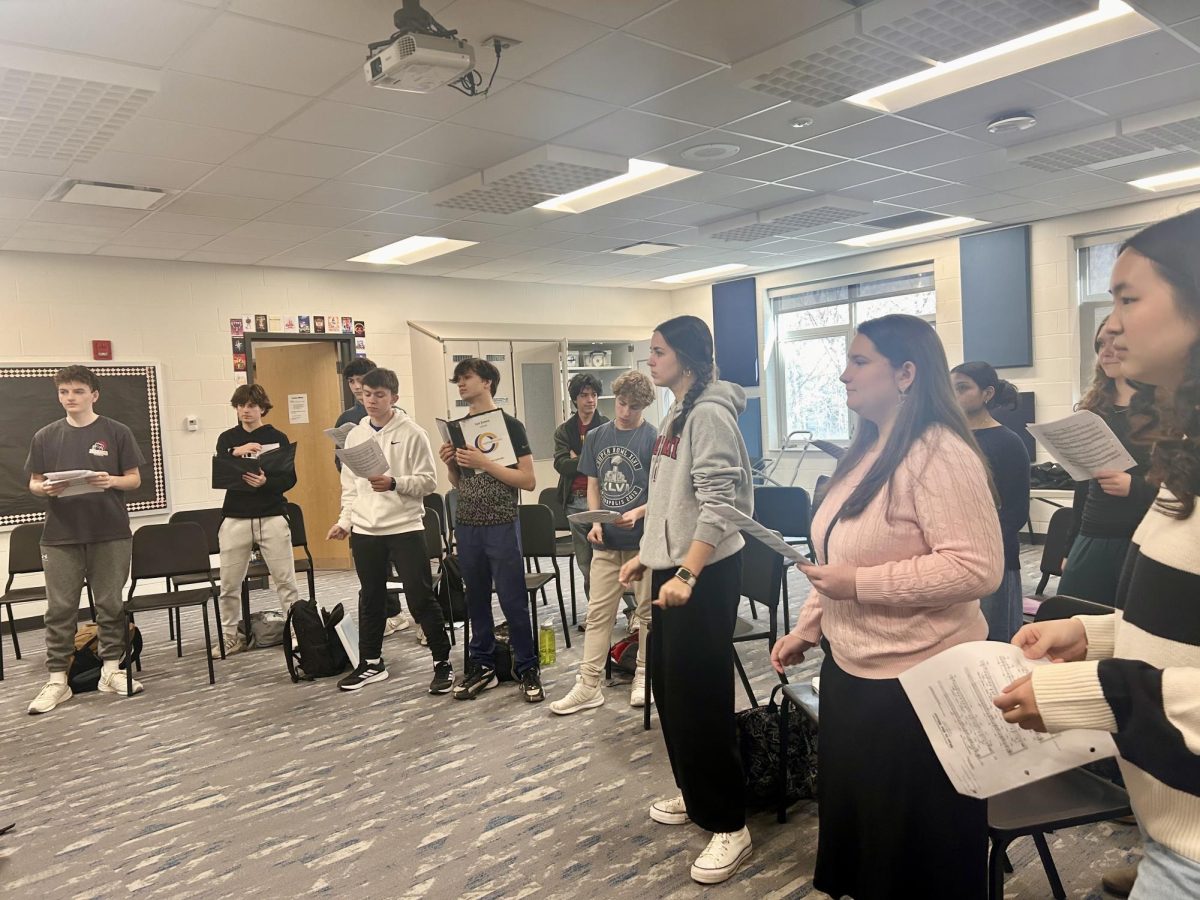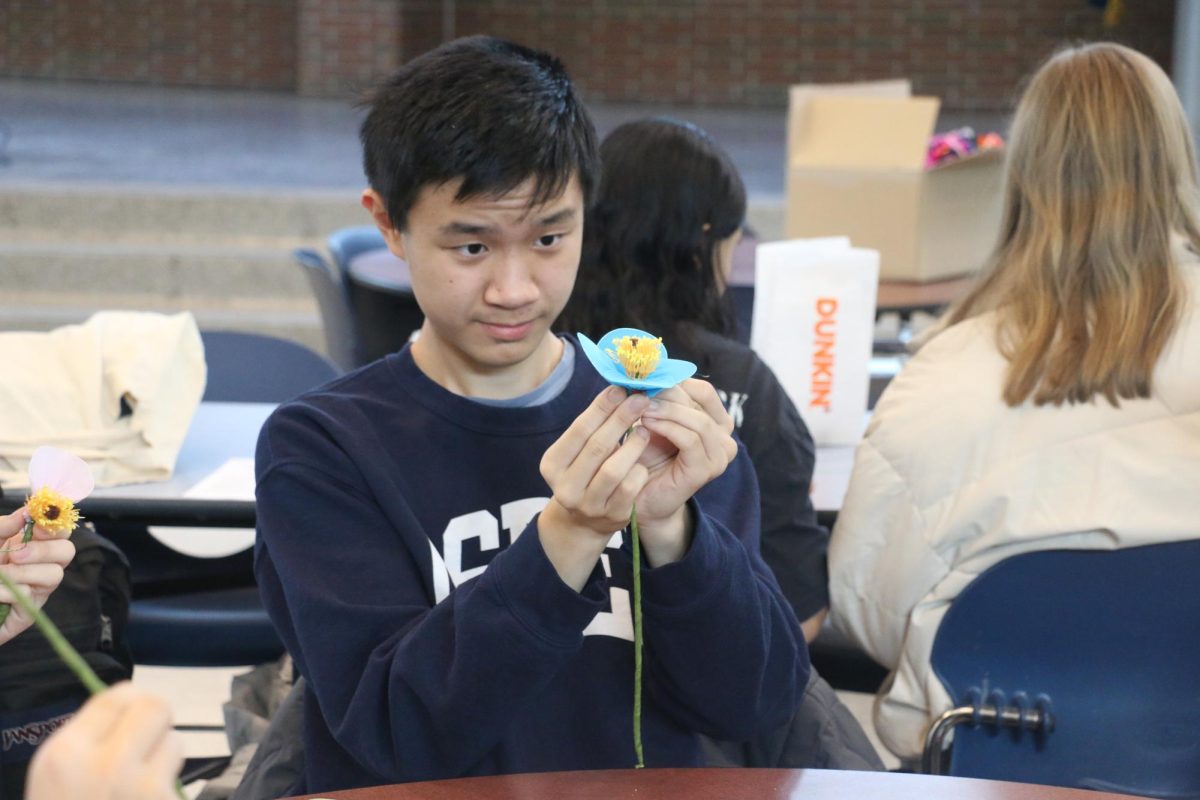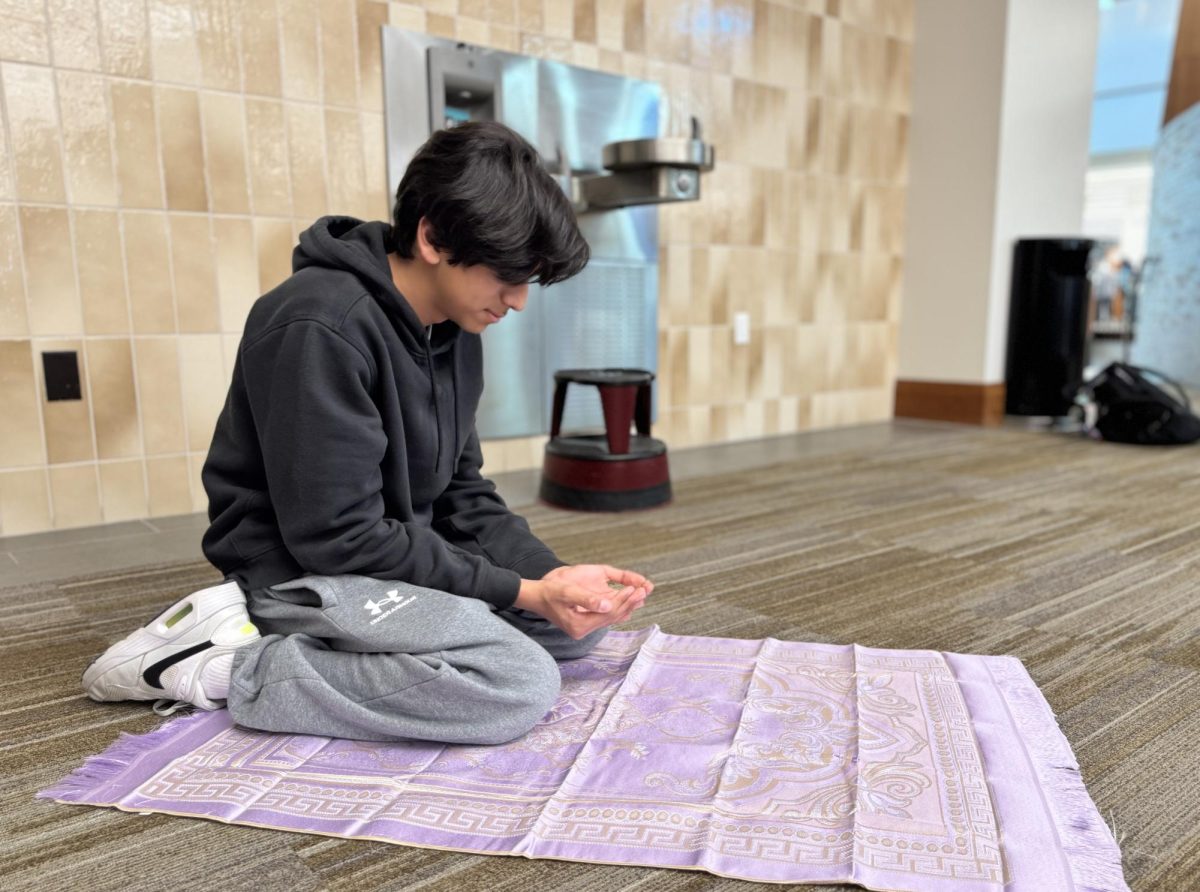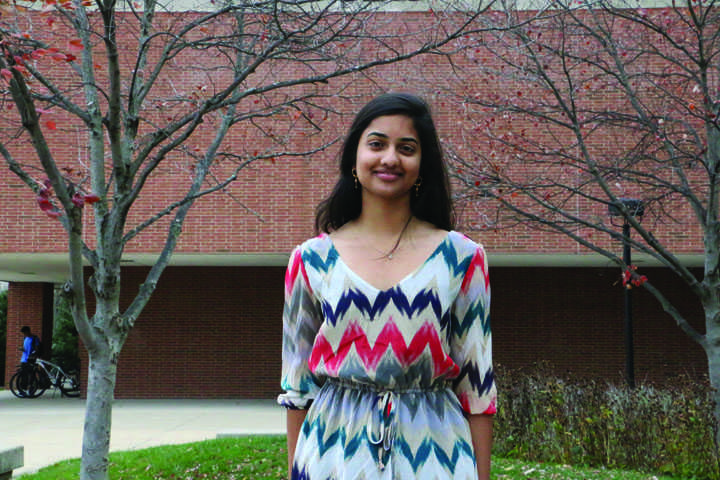Last Semester, a boy approached a lunch table my friend and I had occupied first and stared at us for a minute while his friends urged him on to “Tell it like it is” and then very rudely asked us if we were going to move, like it was expected of us. While my friend was ready to stand her ground, I, not wanting to start any confrontation, suggested we just get up and move tables. While I thought the bullying incident would be over after I left the lunchroom, all during physics class, I was made fun of for what had happened in the cafeteria.
One in six American schoolchildren report being bullied verbally, physically or online, two to three times a month or more, many for more than a year. In a setting that exists to provide us with education, why do about 160,000 American children miss school because of fear of physical and physiological attacks on the basis of their skin, color, ethnicity or religion?
Recently, 12-year-old Ronin Shimizu committed suicide in December 2014 after years of being bullied for being passionate about cheerleading and fashion. Tweets poured in with the hashtags “RIPRonin” and “RIPRoninShimizu.” This is not the first time we have heard about students committing suicide as a result of being bullied for many years, but no one does anything to stop it while it’s happening. Instead, there’s an outpour of support after something tragic like this occurs. Don’t get me wrong; the family deserves all the support they can get. But if the bullying was so bad that a 12-year-old decided to commit suicide, then someone had to have noticed him getting bullied. One person — that’s all it would have taken to save his life.
I’ve been bullied since I was in third grade, so the lunchroom incident was something I was familiar with—maybe too familiar. I have been taught my entire life to stand up for myself when I was being bullied, yet I find myself at a loss of words and completely terrified every time I am faced with a bully. The amount of fear I felt just looking at the boy’s menacing face over something as little as a seat at a lunch table was indescribable. No matter how many times someone tells me to stand up for myself, in the moment, I completely forget everything and shamefully give up to the bully. While my friend in the lunchroom was not going to give up her chair so easily, I, under the pressure, urged her to just move with me. Every time I look back at a situation where I was bullied, I am ashamed of the fact that I did not stand up for myself. I keep telling myself that next time, I’ll get the courage to finally stand my ground. It never happens.
The educational system is far better now than it was decades ago at dealing with bullying cases. Congress and the Legislature have passed significant anti-bullying legislations. There are school counselors who can provide students with guidance to get them through these situations. But even with all these changes, our society hasn’t gotten better. Shimizu switched schools not once, but twice in order to find a place where he could feel comfortable getting an education—something that should not be hard to find.
Shimizu’s death has brought national and international attention once again to shine light on bullying. How much will this actually going to help? This seems to just be a vicious cycle that repeats itself. Story after story comes out and people show their support for the victim, but what is anyone doing to change the situation?
Standing up for myself is something I need to work on, but all I can say is I’m glad I have people to help me get through the bullying. Bullying is something no one should have to go through, especially as a young child. A lot of victims don’t realize there are people willing to help them. Our job is not to judge. Our job is to lift the fallen, restore the broken and heal the hurting.
After many years of being bullied, it would seem that the racist jokes, taunting and sneers do not affect me anymore. But it all hurts the same. It could be something as small as a name call or it could be the person you’ve seen get constantly taunted. Next time, tell the bully to stop. It’s that simple. After all, we are more powerful in numbers. Stop the violent act before it escalates. Intervene. Make sure everyone has a seat at the table. Prevent. Because we know what happens when you don’t.
The views in this column do not necessarily reflect the views of the HiLite staff. Reach Sriya Ravi at sravi1@hilite.org.































![AI in films like "The Brutalist" is convenient, but shouldn’t take priority [opinion]](https://hilite.org/wp-content/uploads/2025/02/catherine-cover-1200x471.jpg)













































![Review: “The Immortal Soul Salvage Yard:” A criminally underrated poetry collection [MUSE]](https://hilite.org/wp-content/uploads/2025/03/71cju6TvqmL._AC_UF10001000_QL80_.jpg)
![Review: "Dog Man" is Unapologetically Chaotic [MUSE]](https://hilite.org/wp-content/uploads/2025/03/dogman-1200x700.jpg)
![Review: "Ne Zha 2": The WeChat family reunion I didn’t know I needed [MUSE]](https://hilite.org/wp-content/uploads/2025/03/unnamed-4.png)
![Review in Print: Maripaz Villar brings a delightfully unique style to the world of WEBTOON [MUSE]](https://hilite.org/wp-content/uploads/2023/12/maripazcover-1200x960.jpg)
![Review: “The Sword of Kaigen” is a masterpiece [MUSE]](https://hilite.org/wp-content/uploads/2023/11/Screenshot-2023-11-26-201051.png)
![Review: Gateron Oil Kings, great linear switches, okay price [MUSE]](https://hilite.org/wp-content/uploads/2023/11/Screenshot-2023-11-26-200553.png)
![Review: “A Haunting in Venice” is a significant improvement from other Agatha Christie adaptations [MUSE]](https://hilite.org/wp-content/uploads/2023/11/e7ee2938a6d422669771bce6d8088521.jpg)
![Review: A Thanksgiving story from elementary school, still just as interesting [MUSE]](https://hilite.org/wp-content/uploads/2023/11/Screenshot-2023-11-26-195514-987x1200.png)
![Review: "When I Fly Towards You", cute, uplifting youth drama [MUSE]](https://hilite.org/wp-content/uploads/2023/09/When-I-Fly-Towards-You-Chinese-drama.png)
![Postcards from Muse: Hawaii Travel Diary [MUSE]](https://hilite.org/wp-content/uploads/2023/09/My-project-1-1200x1200.jpg)
![Review: "Ladybug & Cat Noir: The Movie," departure from original show [MUSE]](https://hilite.org/wp-content/uploads/2023/09/Ladybug__Cat_Noir_-_The_Movie_poster.jpg)
![Review in Print: "Hidden Love" is the cute, uplifting drama everyone needs [MUSE]](https://hilite.org/wp-content/uploads/2023/09/hiddenlovecover-e1693597208225-1030x1200.png)
![Review in Print: "Heartstopper" is the heartwarming queer romance we all need [MUSE]](https://hilite.org/wp-content/uploads/2023/08/museheartstoppercover-1200x654.png)


